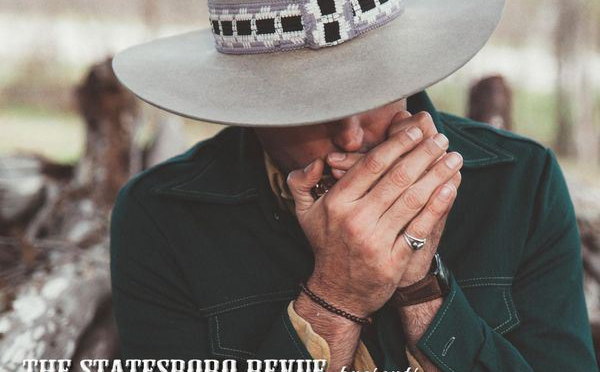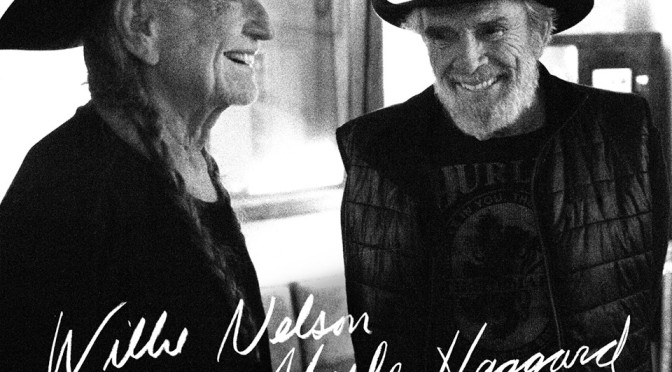Rating: 8.5/10
Stewart Mann, the lead singer and chief songwriter for the Texas-based band known as The Statesboro Revue, says he has ” always strived to create a sound that doesn’t try to reinvent the wheel; merely merge the little idiosyncrasies of all my influences and shape them in a manner that might someday be looked upon as my own unique sound.” It seems he and the band are well on their way; they have found their home in the Texas country scene, but their sound is far removed from that of many of their fellow Texas country artists, mixing country, rock, and blues into a style all their own. Their third album, Jukehouse Revival, just released in August, is a great showcase of the sound and is seeing success on both the Americana and
Texas charts.
The album opens with “Bedroom Floor,” a catchy, mid-tempo song in which Mann talks about how he likes to “smoke and drink” and “hammer down,” but now, as he gets older, it has caught up to him, and “now I always wind up down on the bedroom floor.” In my opinion, a big part of an album’s appeal comes from track placement, especially an opener. I have reviewed better albums, but this one has one of the best openers I have ever heard, in terms of setting the mood of the album perfectly and and capturing my attention. Also, if this is your first time with the band–it was mine–this is a great song to keep you listening. “Every Town” sees Mann spending the night with various women after each show; “there’s one of you in every town.” He wakes up enjoying the fact that he can leave, but she’ll have to stay and deal with the rumors. I’m not sure if I should like this song so much as a woman, but the country rock production makes it simply catchy and hard not to enjoy. The current single, “Undone,” currently at #17 on the Texas Music Chart, is simply about a man who likes to let go and party on the weekends. The difference between this and any bro country anthem? This narrator “got a family that depends on me” and works hard all week, using the weekend to “come undone” and forget about the pressures of life. The correct use of the banjo is also a glaring difference.
“Tallahassee” is an upbeat song where I pay more attention to the excellent country instrumentation–fiddles and keyboards–than the lyrics. The actual song is about trying to get home and thinking of someone back in Tallahassee, but I had to make myself focus on these lyrics after several listens because I was focused on the music. The keyboards show up again in “Roll on Mama,” in which Mann tries to convince the women in the bars to “take a late night chance” on him. “Count On Me” is a nice love song about how he will be there for his woman through hard times; she can always count on him. This was a nice serious moment in the lighthearted album, but it stood out more for good placement than for anything in the song. “Like the Sound” is basically a bro country song, complete with a river and a name-drop of Johnny Cash; it’s better than its bro country counterparts because of the country rock production, but it was still completely unnecessary. Next is “Honkytonkin,” a song that is simply about this: going “honkytonkin” with his woman. It’s got great country rock instrumentation and more of these awesome keyboards, but lyrically, it’s nothing special. Still, it works well on this album, which I’m finding out more and more is very aptly named.
“Satisfied” is another love song–here the narrator is doing everything he can to win a “pretty little girl from Arkansas,” promising to give her everything he can and saying, “I’ll keep you satisfied.” I can’t help but compare this to “Count on Me,” and this is much better lyrically. “Go Down Slow” is the serious counterpart to “Undone.” In “undone,” the man wanted to just let go and party–here, after the hard week, he is praying the alcohol will “go down slow.” “I’d rather feel some pain than nothing at all” captures the desperation in this song better than anything I could write. The steel guitars add to the sadness here to make this a raw, seemingly brutally honest song that stands out harshly and beautifully on the lighthearted album. Jukehouse Revival closes with “Last Ramble,” one of my personal favorites; here, death is compared to a man’s “last ramble” and looked on as a journey to heaven and God, not something to be sorrowful over. This is told from the point of view of the dying man; it’s a peaceful, comforting song and a good way to end the album.
The aptly named Jukehouse Revival is, for the most part, an excellent album. There are some lyrical weak points, and “Like the Sound” was unnecessary in my opinion, but the unique sound that Stewart Mann seeks makes this album a standout. I have reviewed albums with better songwriting, but this album is simply fun and enjoyable to listen to. If you enjoy country rock, you will definitely like Jukehouse Revival.
https://www.youtube.com/watch?v=BefMeqdL4p4

